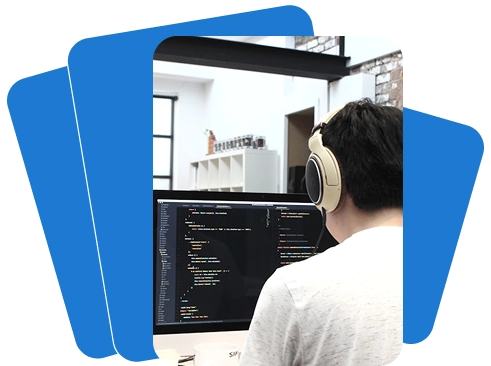Microservice
Development
Development
Dive into microservice architecture and asynchronous systems development using modern technologies such
as Node.js, Nest.js, RabbitMQ, and Nx.
Start Now

Full course
A complete path from the basics to advanced microservice architecture techniques.
Without water
Only concrete knowledge and practical techniques without unnecessary theory.
Practice in the project
Real tasks and implementation of microservices in a working project.
Certificate
Official confirmation of your skills in microservice development.
















